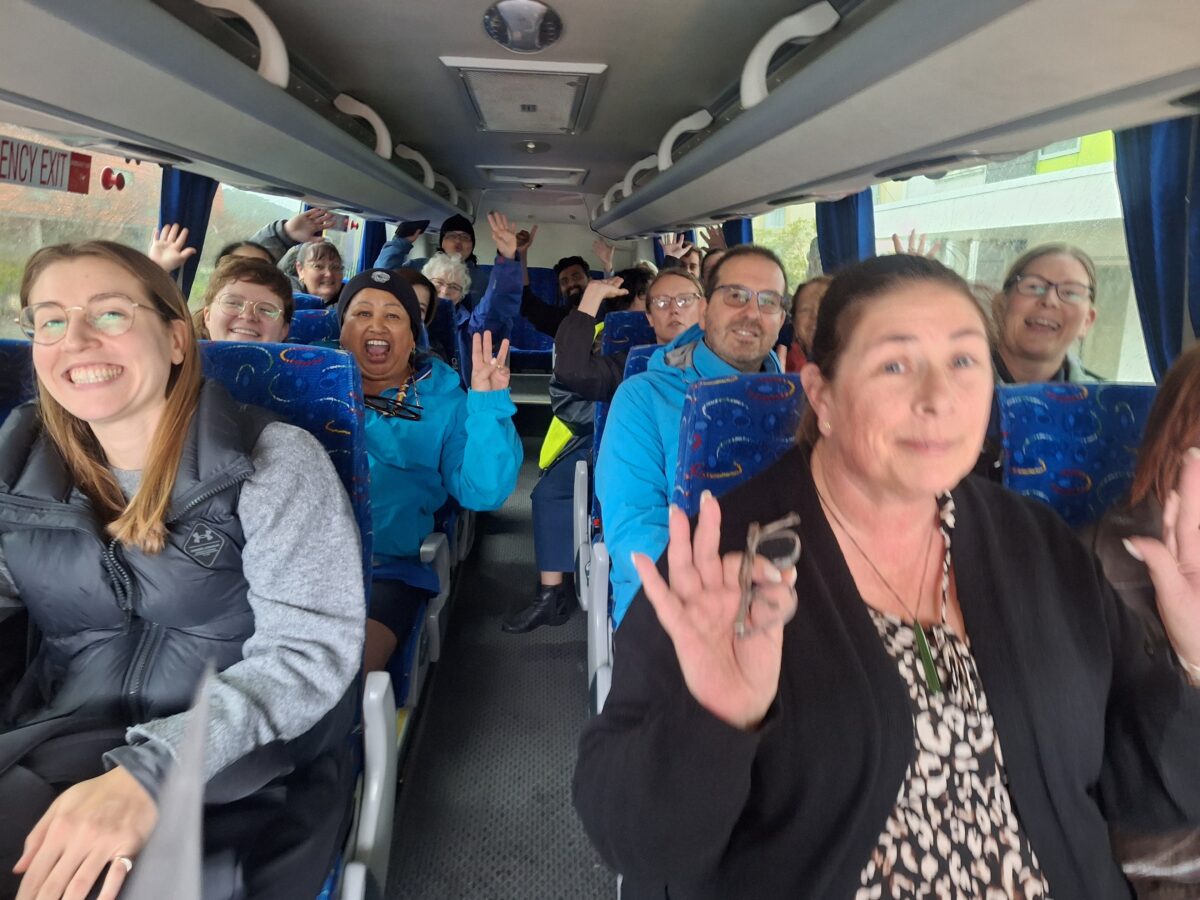Union meetings underway
NZNO union meetings for its Te Whatu Ora members began this week in Christchurch, Whangārei, Hamilton, Tauranga, Rotorua, Wellington, West Coast and Auckland. They will continue around the motu until June 13. Details can be found here.
There are 54 meetings in total, at which members will decide whether to take strike action and call for a better offer, after decisively rejecting Te Whatu Ora’s offer last month.
NZNO’s bargaining team says the offer fails to secure safe staffing and graduate employment or match the cost of living.
A strike ballot will then be held between June 16 and 19.
In Wellington, more than 200 Te Whatu Ora nurses, midwives and health-care assistants turned out in pouring rain to express their dissatisfaction and determination to take “hard-hitting” strike action.
Many were impatient to strike as soon as possible.
Māori health nurses Tuppy Parker and Kirimoana Pook said they were “definitely” understaffed with not enough Māori health specialist nurses covering Wellington, Hutt and Keneperu hospitals — despite Māori having higher health needs.
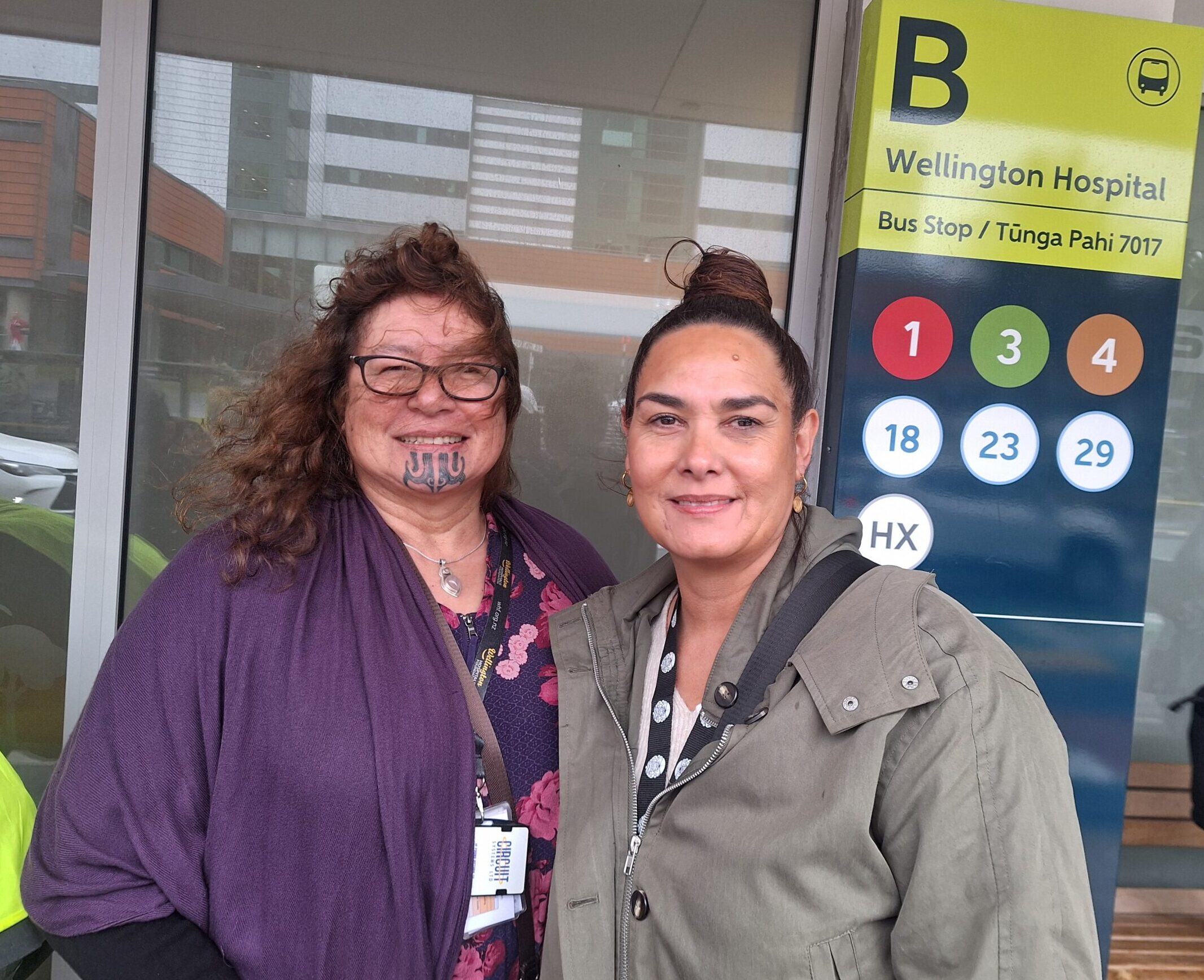
Waiting for the bus, endocrine nurse Pip Cresswell said they were not at all happy with Te Whatu Ora’s offer, which did not provide for safely staffed workplaces or a cost-of-living pay rise.
‘This Government doesn’t care about you if you are a woman, if you are poor, if you are Māori.’
“We’re very tired of being stomped on by the Government and feel devalued.”
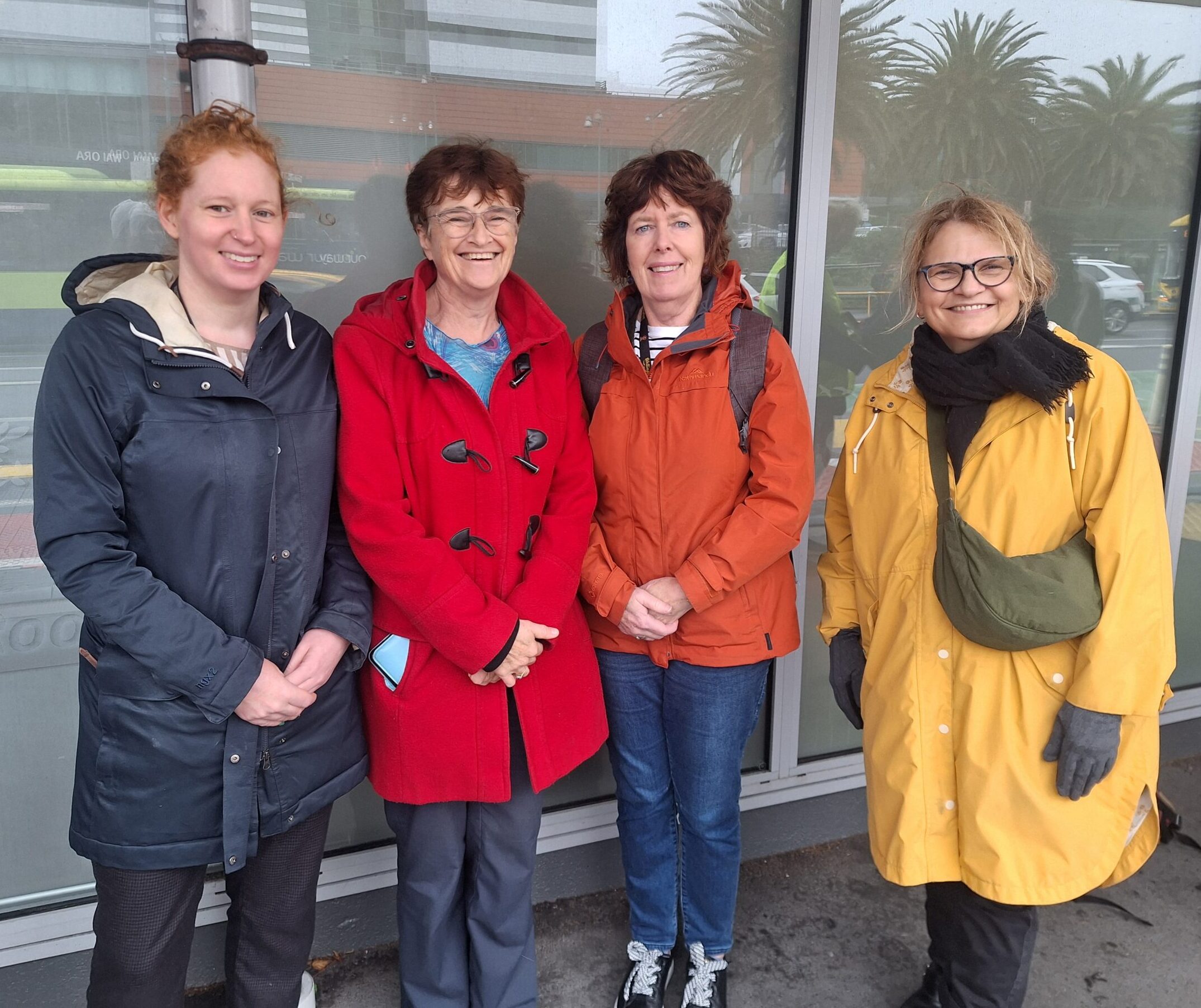
NZNO delegates Karen Durham and Heather Brown said nurses were “sick” of working in understaffed conditions and were prepared to take action.
Hutt Hospital delegate Nathan Clark told members they needed to decide whether to accept or reject the offer, which would be an effective pay cut.

“Do we accept one per cent — an effective pay cut? Or say ‘we are in this for the long haul’ and make a stand’.
“We need to send a really clear message,” he said. “What are we prepared to do?”
“Strike!” was the reply from more than 200 members across the region.
NZNO delegate Grant Brookes — also a board member — said NZNO was at a “fork in the road”.
Government health funding was inadequate while privatisation was increasing and “truly radical” deregulation — including fewer clinical practice hours for students and potential abolition of the Nursing Council — was on the cards, he said.
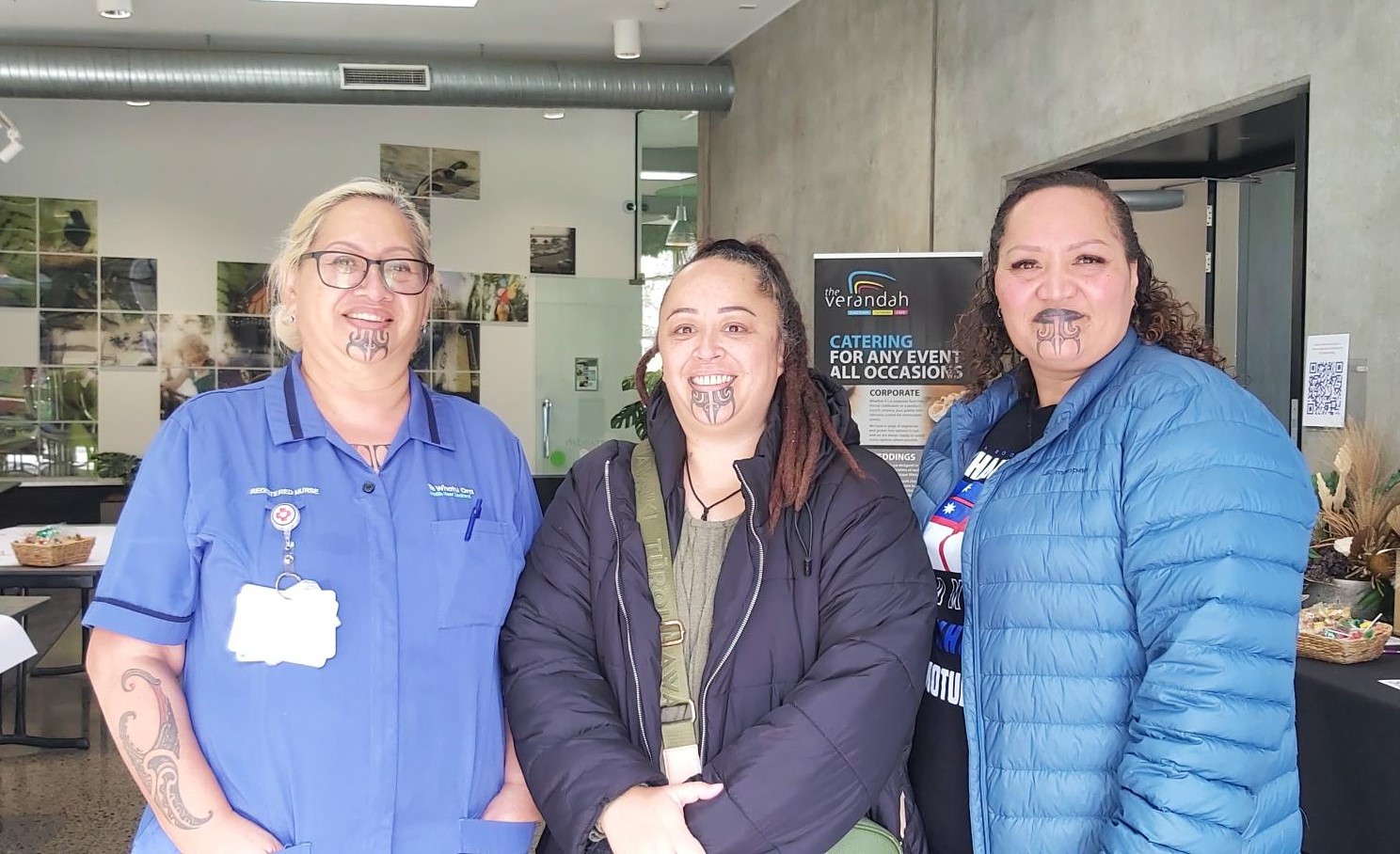
“Do we go down a path worse for patients, whānau and communities, and worse for us?” Brookes asked.
Citing successful actions in Napier over loss of its after-hours urgent care and by junior doctors last year, Brookes said industrial action could make a difference.
“We can change the path this Government is on . . . that is the power of industrial action.”
‘I really care about my patients — they’re the number one reason I turn up to work and I want them to be safe.’
Paediatric community nurse and NZNO delegate Amanda Rogers spoke about possible local actions to put pressure on employers, in conjunction with other health unions.
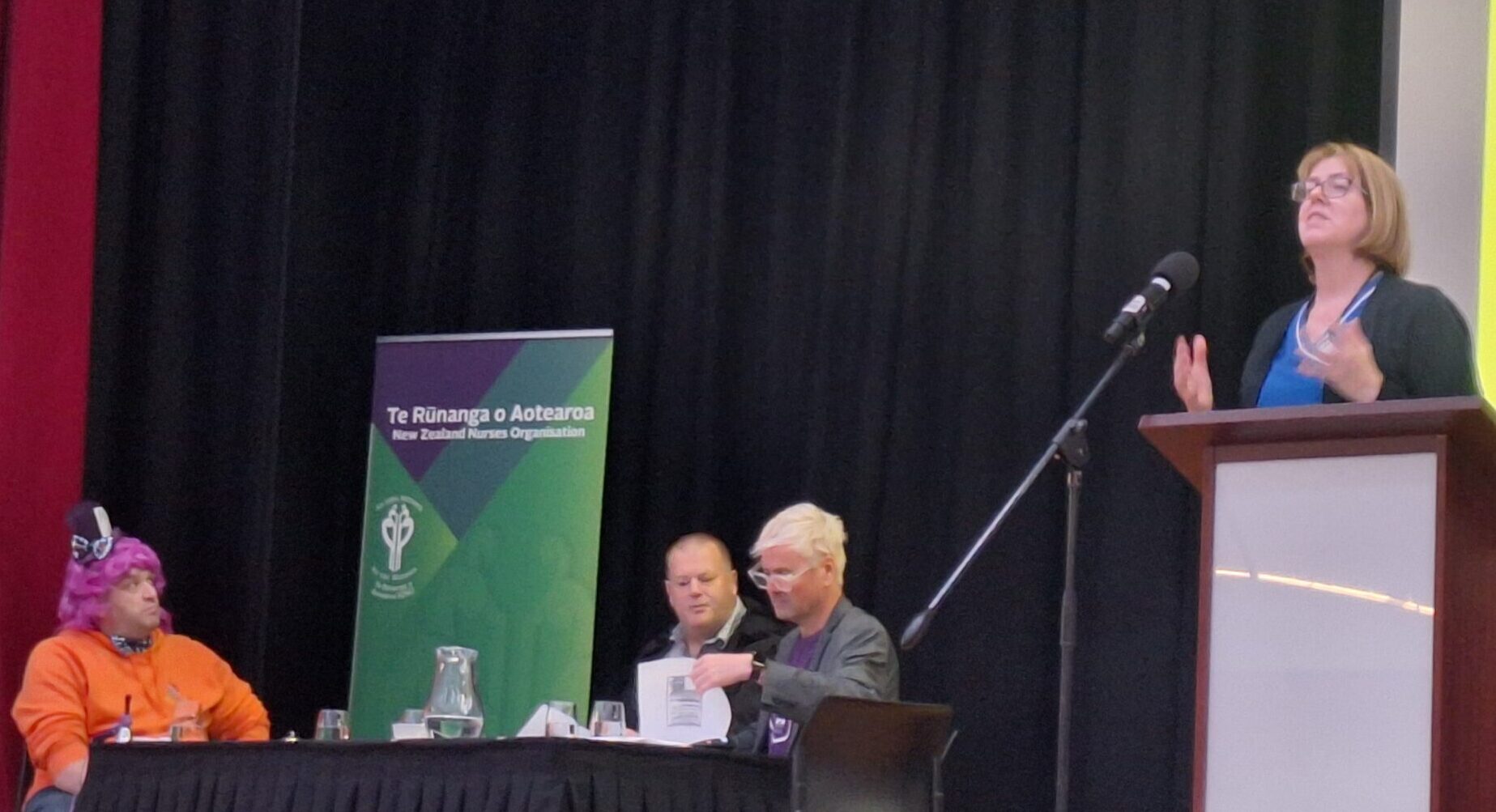
“All I know is if we do nothing, nothing will happen and we’ll be left with the status quo.”
NZNO’s Keneperu Hospital delegate Hayden Wallace said it was important members took the time to vote in this month’s ballot.
At the central Auckland hui, nurses said they wanted a commitment to safe staffing and for nurses to be paid what they’re worth — but most of all, didn’t want to let their patients down.
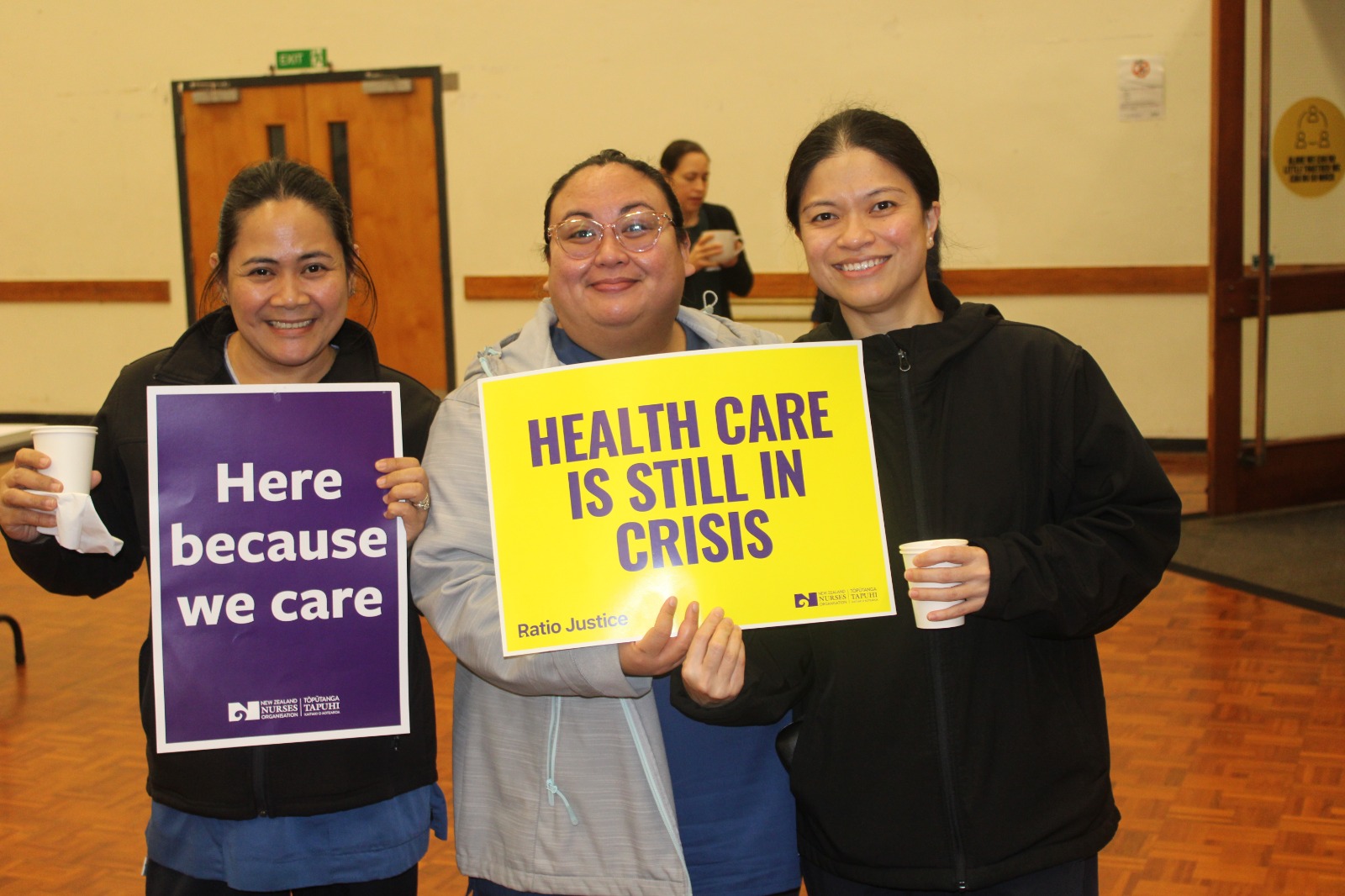
“I really care about my patients — they’re the number one reason I turn up to work and I want them to be safe and have the best possible experience they can,” one said.
‘Do we go down a path worse for patients, whānau and communities, and worse for us?’
Another said she turned out to the meeting to support all the nursing team and make sure health care and its workers were valued.
One critical care nurse stood up to say: “This Government doesn’t care about you if you are a woman, if you are poor, if you are Māori.”
‘More need to step up — think about the collective’
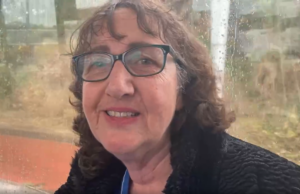
While on the bus from Keneperu Hospital to the meeting at Lower Hutt yesterday, NZNO delegate Trish McNair said she hoped members would step up to take strike action..
“I am about to retire soon but I still very much care about the collective because I can see the systemic failure that’s coming.”
McNair said she planned to keep talking about the importance and benefits of strike action.
Wellington nurse Sarita Sharma explains why she wants to go on strike for safe staffing
Te Whatu Ora urges ‘return to table’
Te Whatu Ora has said it was “disappointed” its offer was rejected, interim chief executive Dale Bramley this week calling on NZNO to return to the bargaining table to resolve 2024/26 negotiations.
However, it would be ensuring members were able to attend the mass union meetings from June 3 to 13 while continuing to deliver health and hospital services, he said.


